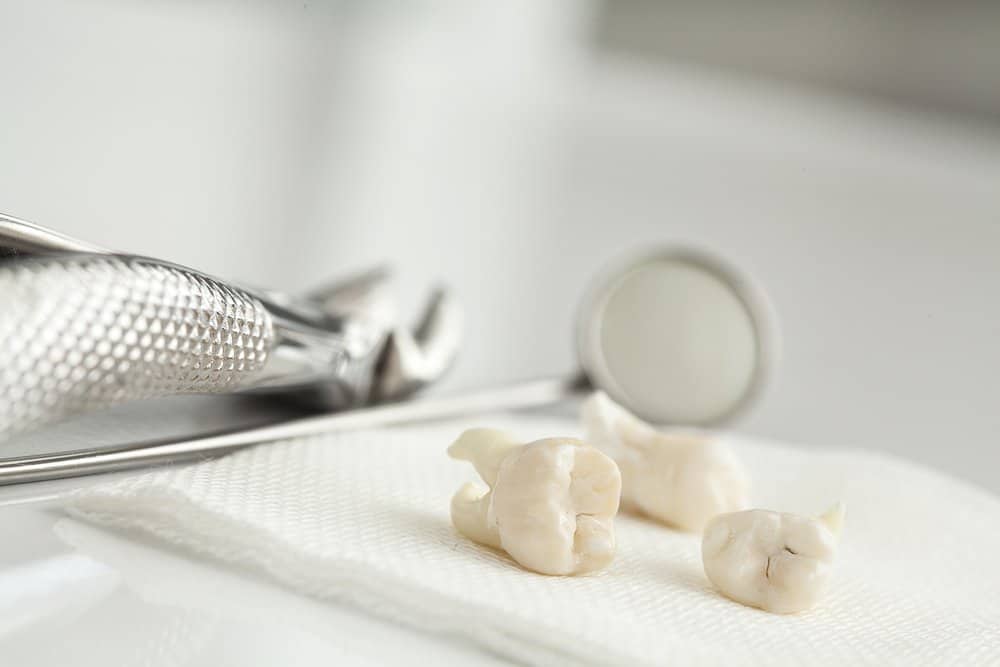AD | Featured
Preserving the quality of a patient’s smile is a top priority for most every dental office. Those that practice conservative dentistry will go above and beyond to save a tooth, versus the alternative of extraction. Extracting a tooth is a standard procedure done in dental offices, where the entire tooth is removed from the socket. While this might not sound like something you’ll want to go through, it can benefit the health of your smile.
Common causes of extraction
Most people, when they visit their dentist, know that they’ll have to have an extraction. The common thing that drives a person to visit their dentist is pain. As you’ll see with the common causes of extraction, many of these have pain associated with them. Let’s go over the top symptoms or situations your dentist might recommend an extraction.

Gum Disease
When gum disease is left untreated, recession can occur. Bacteria will rest at the root of the tooth and cause decay or the tooth to loosen. Once the tooth is loose, and the gum has receded to a certain point, extraction is one of the only solutions.
Trauma
Trauma, or an accident to the tooth, can prompt your dentist to recommend removal. For example, if you fall face first and one of your teeth breaks off down to the gum line, this is an instance the tooth can’t be saved. A crown can’t be fitted over the remaining tooth and therefore, would benefit from removal and replacement.
Wisdom Teeth
Wisdom teeth are the most common extraction to happen, or well known. The third molars often need to be removed because of pain or damage to the rest of the teeth. Most mouths can’t accommodate the third molars; there isn’t enough space. Your wisdom teeth can be pulled or surgically cut out, depending on the situation and what your dentist recommends. However, most commonly, these are surgically cut out because of their location.
Tooth Infection
An infected tooth is a condition guaranteed to drive a person to visit the dentist, even if they haven’t gone in a long while. A tooth infection, commented by many, is one of the most painful experiences. If your tooth has repeated infection and decay, your dentist may recommend it’s removal. This will stop the infection from happening again, thus preventing the recurrence of discomfort.
Decay
For those that have not practiced good oral hygiene, there might be some tooth decay. For example, if you let a cavity go untreated, it will spread. The hole in the tooth will get bigger and eventually weaken to the point it might break. Excessive tooth decay that can’t be repaired may require an extraction, for tooth replacement or to solve pain issues.

Are Extractions Painful?
Having a tooth pulled undoubtedly isn’t something a person would choose to do if there wasn’t an underlying problem, like pain. But many wonder how painful having a tooth pulled will be. The good news is your dentist will thoroughly numb the area, meaning you won’t feel any pain. There might be a feeling of pressure as the tooth is removed if it isn’t surgically extracted.
If your dentist is going to surgically extract a tooth, like removing all the wisdom teeth, he or she may put you to sleep. In this case, you will not feel anything. It’s important that following the extraction; you keep to your dentist’s recommendations for after-care, including taking any pain medications on time.
When Should You Contact Your Dentist?
After your extraction, you shouldn’t have to call your dentist. However, there are instances where you should. Infection is the number one concern. If you have signs of infection, including discharge from the incision site, fever, or more pain, you should contact your dentist right away. Don’t get overly worried if you have significant bleeding for the first 24-48 hours. It may seem like a lot, but it is blood mixing with saliva, making it look more abundant.
For more about extractions or to schedule an appointment with Kingwood Family & Cosmetic Dentistry, visit them online today.































No Comments